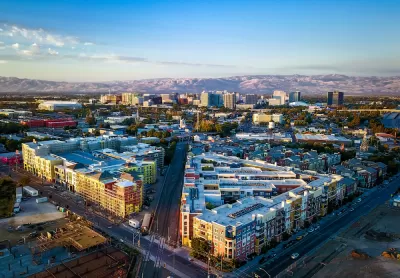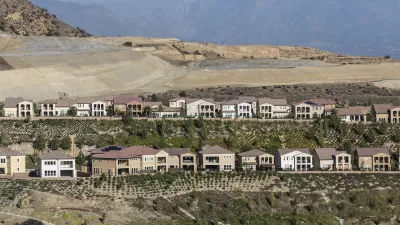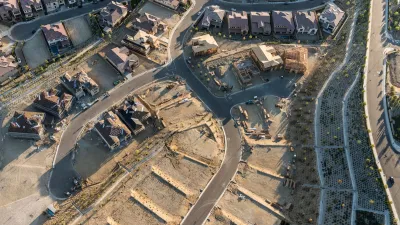Although no U.S. region has yet to even get halfway to sustainability goals set by the Paris Climate Agreement, certain U.S. cities are doing better than the rest.

Teresa Mathew reports: "U.S. coastal cities are coming the closest to meeting sustainability goals set by the UN, according to the first analysis of 100 metropolitan cities by the Sustainable Development Solutions Network (SDSN)."
"The Sustainable Development Goals Index measures how successfully cities are dealing with issues related to poverty, health, and equitable income distribution in addition to climate change objectives like cutting large carbon emissions," according to Mathew's explanation of the sustainability goals in question. According to the index, San Jose-Sunnyvale-Santa Clara has the highest score on the index, with 61.04. Provo-Orem is second on the list, but regions located in coastal states dominate the top ten.
Although it might seem like coastal proximity is an incentive to address the threats and challenges of climate change, Baton Rouge brings up the rear on the list of 100 "city regions." The Silicon Valley's top performance in the analysis would seem to contradict complaints about the tendency of Silicon Valley companies to build suburban-style campuses, away from transit, and Silicon Valley cities that have historically opposed land use regulations that could allow for new housing developments.
Mathews explains a few other big takeaways from the analysis, including he connection between poverty and emissions.
FULL STORY: America's Most (and Least) Sustainable Cities, Ranked

Alabama: Trump Terminates Settlements for Black Communities Harmed By Raw Sewage
Trump deemed the landmark civil rights agreement “illegal DEI and environmental justice policy.”

Study: Maui’s Plan to Convert Vacation Rentals to Long-Term Housing Could Cause Nearly $1 Billion Economic Loss
The plan would reduce visitor accommodation by 25% resulting in 1,900 jobs lost.

Why Should We Subsidize Public Transportation?
Many public transit agencies face financial stress due to rising costs, declining fare revenue, and declining subsidies. Transit advocates must provide a strong business case for increasing public transit funding.

Wind Energy on the Rise Despite Federal Policy Reversal
The Trump administration is revoking federal support for renewable energy, but demand for new projects continues unabated.

Passengers Flock to Caltrain After Electrification
The new electric trains are running faster and more reliably, leading to strong ridership growth on the Bay Area rail system.

Texas Churches Rally Behind ‘Yes in God’s Back Yard’ Legislation
Religious leaders want the state to reduce zoning regulations to streamline leasing church-owned land to housing developers.
Urban Design for Planners 1: Software Tools
This six-course series explores essential urban design concepts using open source software and equips planners with the tools they need to participate fully in the urban design process.
Planning for Universal Design
Learn the tools for implementing Universal Design in planning regulations.
Caltrans
Smith Gee Studio
Institute for Housing and Urban Development Studies (IHS)
City of Grandview
Harvard GSD Executive Education
Toledo-Lucas County Plan Commissions
Salt Lake City
NYU Wagner Graduate School of Public Service





























